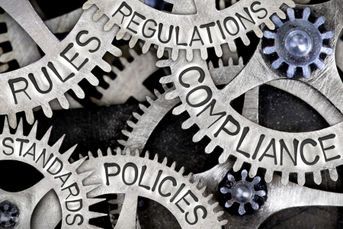Taking their cue from Congress
I think I found the model for how opponents of the fiduciary standard hope to render the standard meaningless after financial regulatory reform
I think I found the model for how opponents of the fiduciary standard hope to render the standard meaningless after financial regulatory reform.
The model has four parts that can work perfectly to dilute the fiduciary standard and render it pointless.
Step one: Profess to be wholly supportive of letting the fiduciary standard apply to your line of work.
Step two: Secure self-regulation.
Step three: Rather than avoid conflicts of interest, make rules that rely on disclosure to provide a theoretical means of controlling self-dealing.
Step four: Provide rule interpretations that prevent real accountability in case anyone discovers that disclosures don’t work.
This isn’t a hypothetical model; it works great. It is how Congress circumvents its fiduciary obligations.
A recent academic study helped me piece the model together.
This summary from the abstract will give you the picture: “Consistent with [a previous] study of senatorial trading activity, we find stocks purchased by representatives also earn significant positive abnormal returns … We find strong evidence that members of the House have some type of nonpublic information that they use for personal gain.”
Abnormal returns, indeed. The earlier study — of the annual trading results of senators — cited excess returns of 10% relative to what would be statistically expected, and the follow-up study — of trading by representatives — found excess returns of 6% (“Abnormal Returns From the Common Stock Investments of Members of the U.S. House of Representatives,” published in Volume 13, Issue 1 [2011] of Business and Politics).
Surely, I thought, even if this self-dealing isn’t illegal for members of Congress, as it would be for financial professionals, it must be banned by congressional codes of ethics.
To find out, I turned to the House Ethics Manual.
It got off to a promising start with this opening quote from a speech delivered in 1829 by then Speaker of the House Henry Clay: “Government is a trust, and the officers of the government are trustees; and both the trust and the trustees are created for the benefit of the people.”
LEGISLATORS ARE FIDUCIARIES
Anyone with even the slightest understanding of the meaning of the words “trust” and “trustees” should recognize that this is the equivalent of saying, “You, as a member of Congress, are a fiduciary.”
Unfortunately, it is all downhill from there.
The next 400-plus pages of the manual are filled with double talk to obfuscate what level of fiduciary accountability may actually exist under the code. Strong fiduciary-sounding pronouncements are frequently contradicted by nuanced exceptions established by rules.
In a landmark 1928 case regarding investment fiduciary responsibility, Judge Benjamin Cardozo, then chief judge of the New York State Court of Appeals, warned of the “disintegrating erosion” inflicted upon the fiduciary standard by exceptions to the underlying principles. The House Ethics Manual is a case study of how this happens in practice.
Consider a relevant section of the manual pertaining to the issue of insider trading.
The manual noted: “The New York Bar Association undertook a comprehensive study of congressional ethics beginning in 1967 … [and] found that the most serious charge which can be made against a public official’s ethics is that he betrays the public’s trust in him by using the office to advance his own financial interests at the public’s expense.”
And yet just two paragraphs later, the manual states: “As a general matter, however, members and employees need not divest themselves of assets upon assuming their positions, nor must members disqualify themselves from voting on issues that generally affect their personal financial interests. Instead, public financial disclosure provides a means of monitoring and deterring conflicts.”
Congress acknowledges fiduciary obligations, vows to regulate itself to protect the public trust, adopts disclosure to give the aura of doing something to discourage bad behavior, then writes a rule of interpretation that destroys any real accountability in the unlikely event that someone actually uses the disclosures to uncover real wrongdoing. The result is a fiduciary standard in name only.
The Founding Fathers of our Constitution supported of the concept of government as a trust and of its officers’ acting as trustees. Fiduciary duties of loyalty, due care and good faith appear to have been lost from the consciousness of legislators.
Emulating congressional conduct is no way for the financial services industry to restore faith in the financial system and its representatives.
Blaine F. Aikin is chief executive of Fiduciary360 LLC.
Learn more about reprints and licensing for this article.







